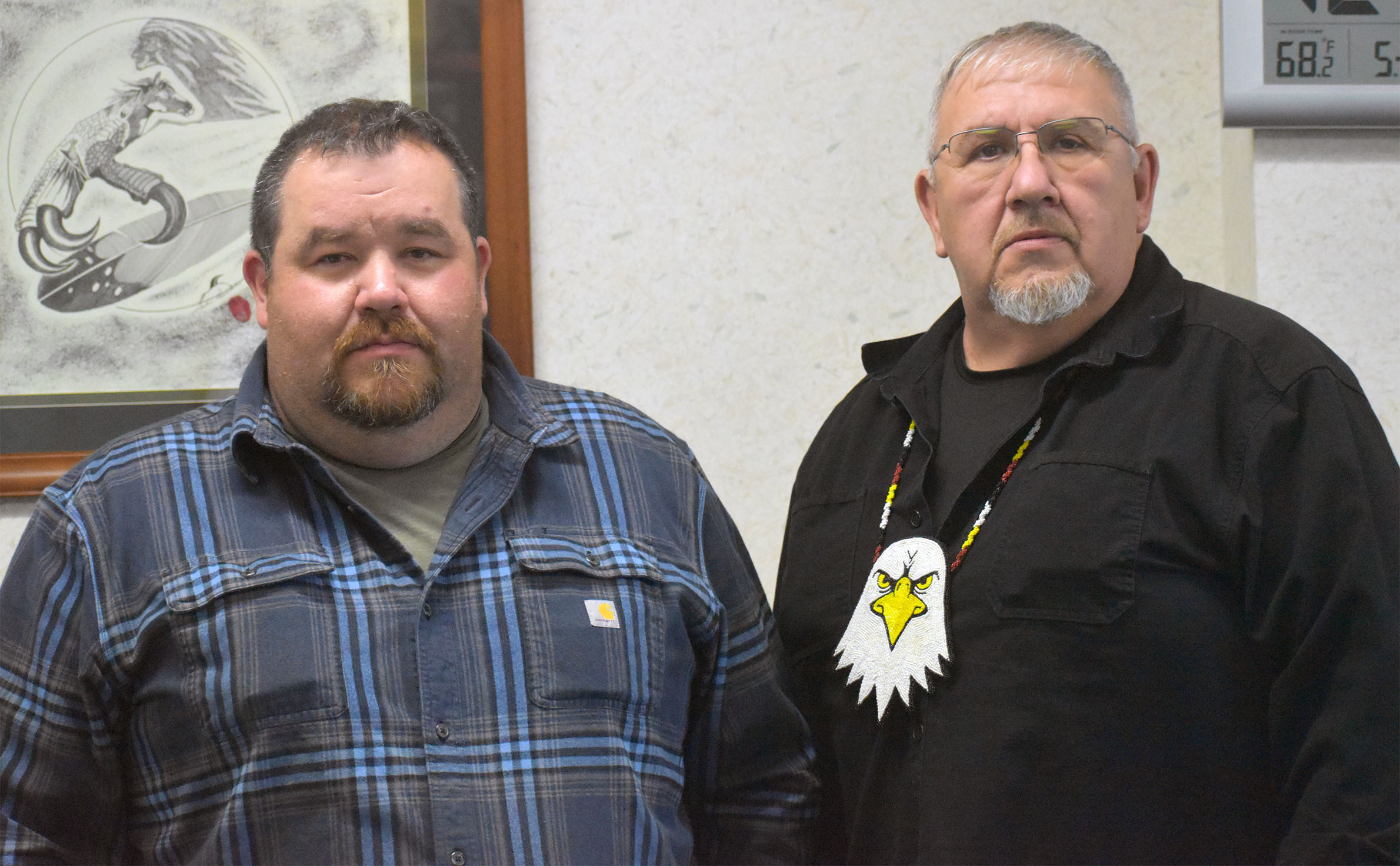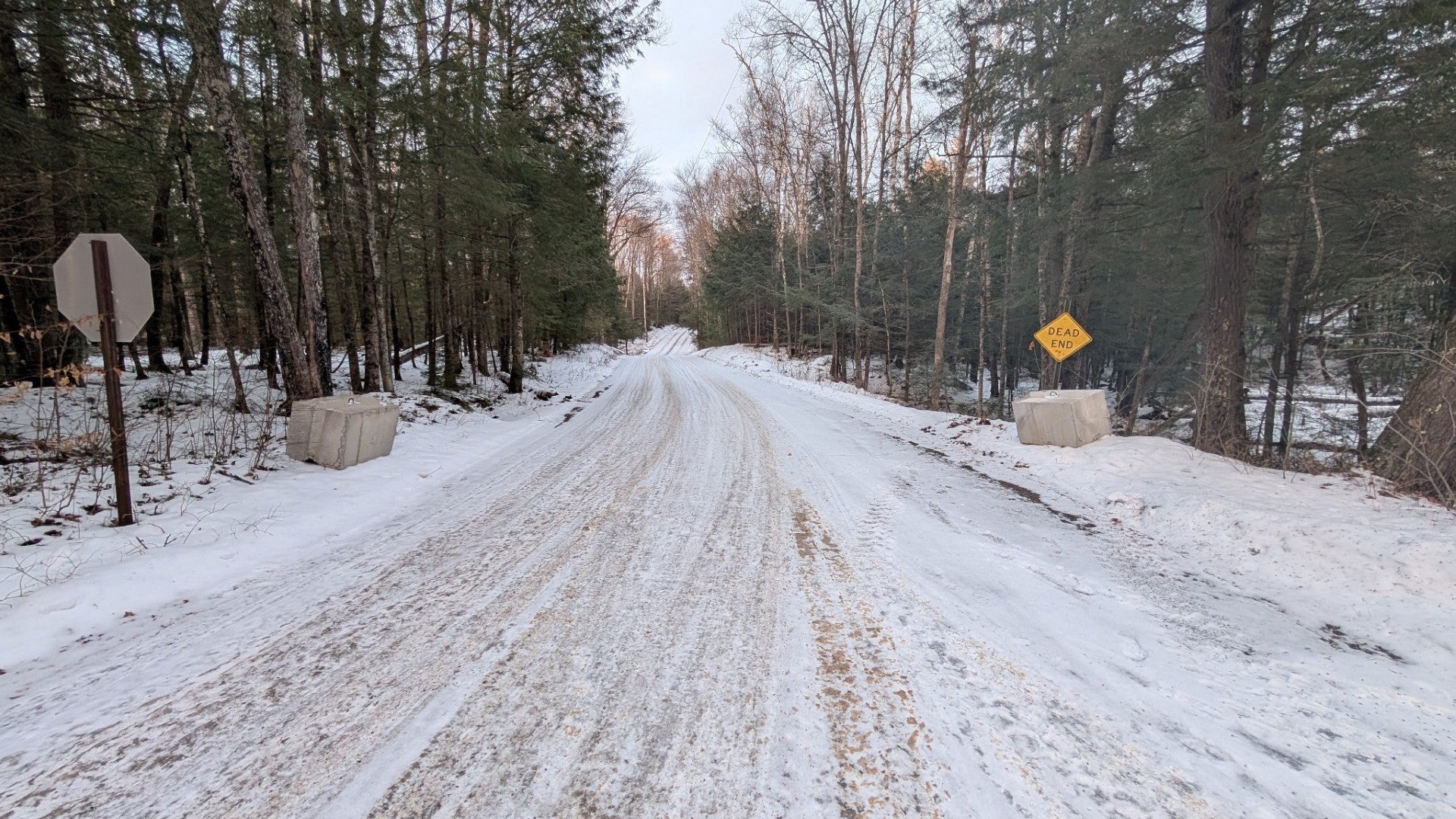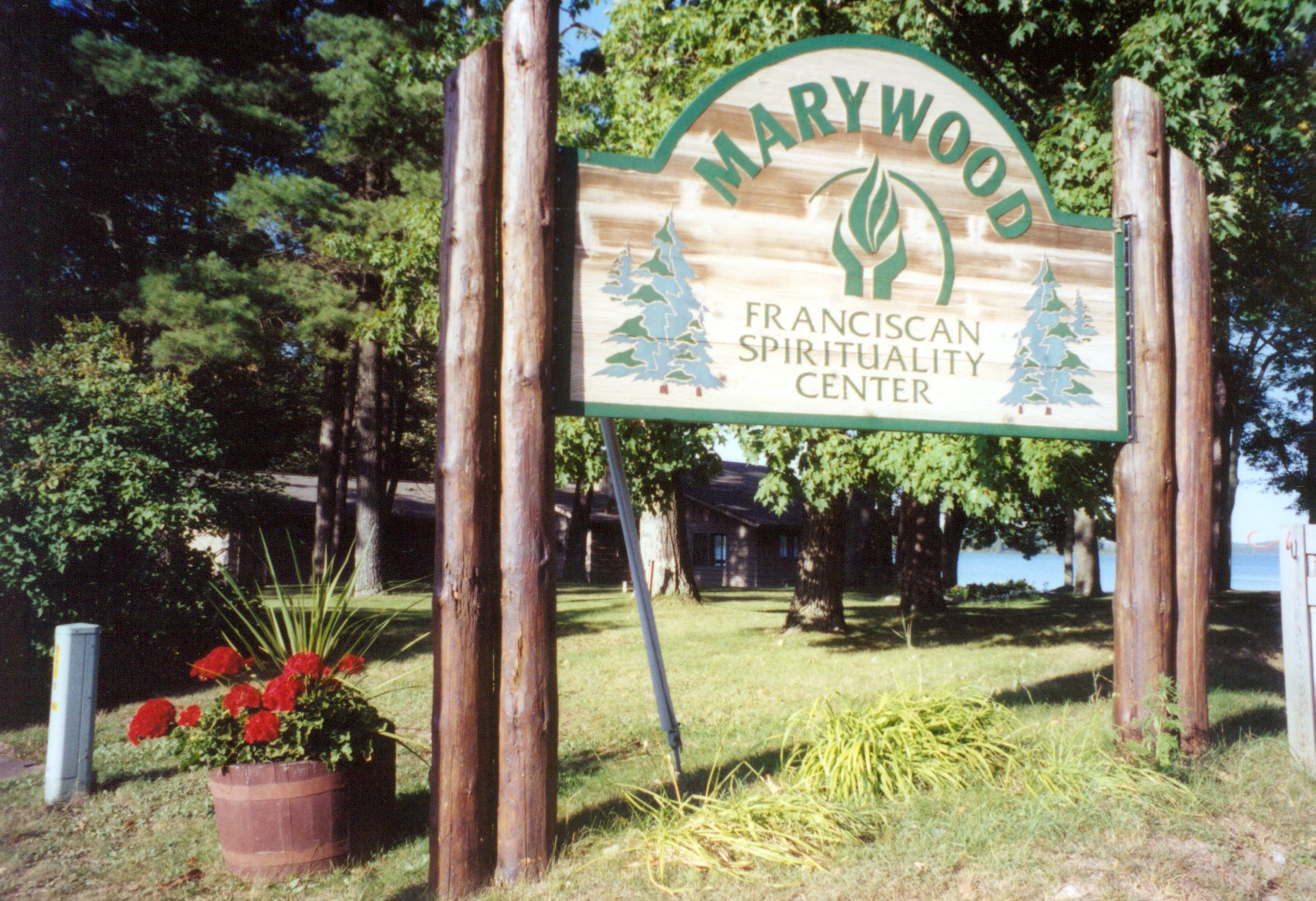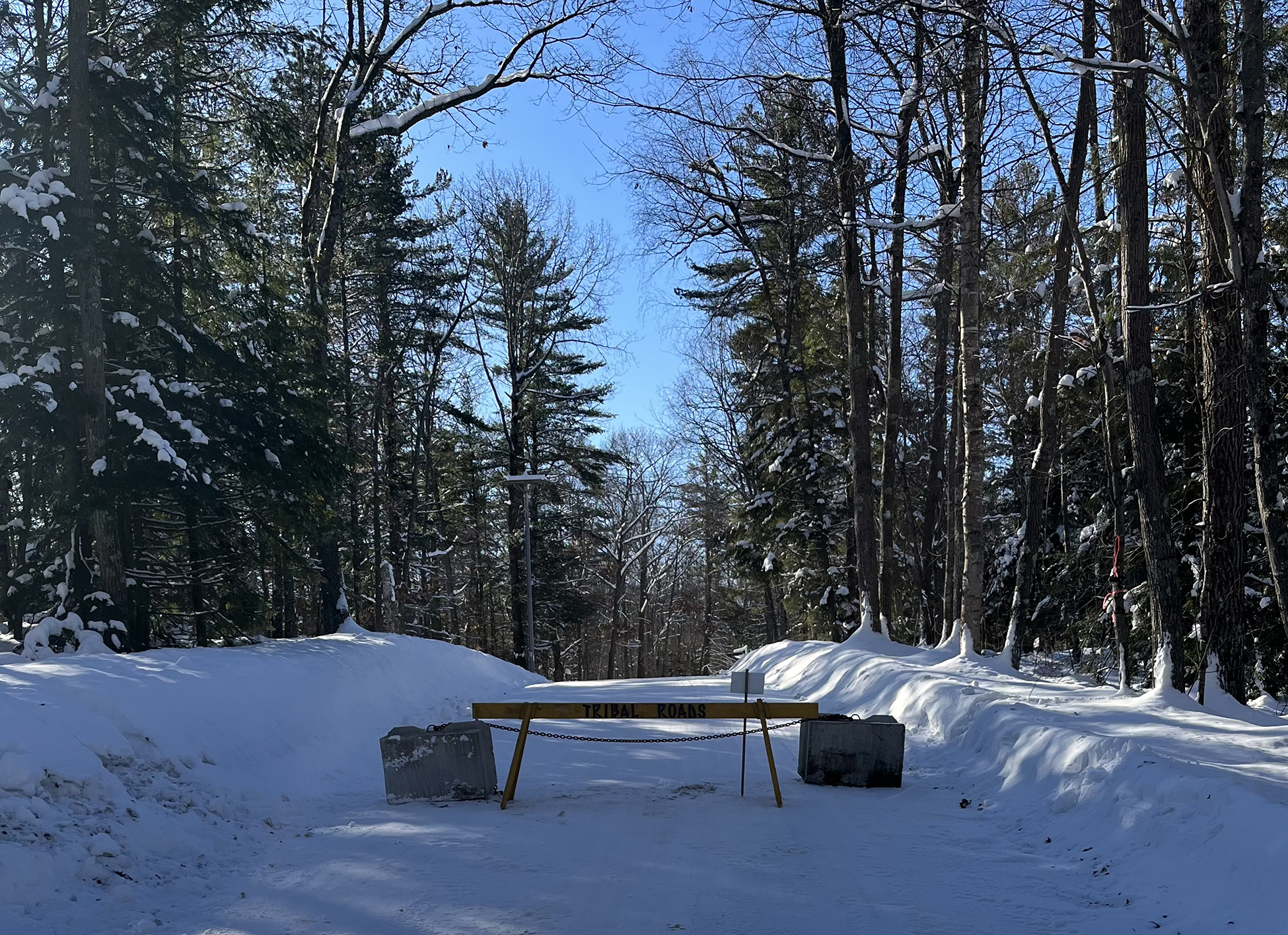Just days after deciding to keep disputed roads open, leaders of the Lac du Flambeau Band of Lake Superior Chippewa announced the tribe will begin issuing citations today to people “trespassing” on the roadways.
The Lac du Flambeau Tribal Council voted Wednesday to issue citations for unauthorized use of Annie Sunn Lane, Center Sugarbush Lane, East Ross Allen Lake Lane and Elsie Lake Lane. The four roads are at the heart of a longstanding feud with the town of Lac du Flambeau. The tribe said it’s issuing citations to uphold tribal sovereignty and ensure protection of its reservation.
The tribe told WPR citations may cost in the range of $200, but the amount has not yet been determined. Non-tribal homeowners living along the roads could potentially be ticketed daily, according to the tribe. Tribal members along the routes will not be affected.
In a statement, the tribe said it had “no choice but to enforce trespassing laws on its land” after seeing limited progress with the town of Lac du Flambeau to resolve the ongoing dispute.
“Our priority is the safety of our community, upholding our sovereignty, and ensuring the integrity of our land,” Tribal President John Johnson Sr. said. “The Tribe is not just some private landowner complaining of unauthorized access over its lands. We are a sovereignty under the law and the Tribe intends to exercise its right under the law to cite for unauthorized trespass.”
The tribe said individuals may face legal consequences if they’re found in violation. The tribe has set up cameras on the four roads, and officers with the Lac du Flambeau Tribal Police Department are patrolling the area. As of early this afternoon, the tribe had not yet cited anyone for trespassing.
Neither the town’s attorney nor the town board chair immediately responded to requests for comment Friday afternoon.

News with a little more humanity
WPR’s “Wisconsin Today” newsletter keeps you connected to the state you love without feeling overwhelmed. No paywall. No agenda. No corporate filter.
Decision comes days after tribe decided not to block roads
The announcement comes two days after the tribe decided to keep the four roads open, prompting a federal judge to decline a request that it ban anyone from blocking them. Instead, the judge ordered the federal government to act immediately to prevent anyone from barring access to the four routes.
In January 2023, tribal officials erected barricades on four roads, blocking access to non-tribal properties within the reservation.
That move came after negotiations failed between the tribe, the town of Lac du Flambeau and title companies over expired easements on those roads that were never renewed. While the tribe reopened roads weeks later, the federal government has since sued the town on behalf of the tribe for trespassing.
Tribal leaders had been granting access in exchange for monthly payments that town leaders say they can no longer afford. The tribe’s president gave the town until Jan. 16 to pay outstanding fees or face “restricted access over the four roads.”
Homeowners on the disputed roads said the concrete barriers were returned to the roadsides as the deadline was approaching. However, attorneys with the U.S. Department of Justice said Wednesday the tribe would remove barricades along the roads and rescinded the Jan. 16 deadline.

Tribe open to talks with Lac du Flambeau town board
The tribe said it remains open to discussions with the town board to find a “mutually respectful and equitable solution.”
“The Lac du Flambeau Tribe asks for understanding and cooperation from community members during this time. The Tribe remains committed to protecting the health, safety, and welfare of the Reservation,” the tribe said in its statement.
Town Board Chair Matt Gaulke said at a town meeting Wednesday that the board had directed the town’s attorney to pursue a meeting with the Department of Justice in February.
Homeowners like Dave Miess say they just want to be able to get to their homes, which have decreased in value 75 percent or more since the road closures. Miess said the citations leave homeowners in the same situation as if the roads had been blocked.
“I can’t be paying hundreds of dollars of fines every time I need to go to the grocery store or have a doctor’s appointment or something like that,” Miess said. “I’m going to have to go across the lake.”
Miess said he doesn’t think a federal judge presiding over the case against the town will look favorably on tribal leaders’ decision. He added that the tribe didn’t notify homeowners, who learned of the citations from a press release posted on social media.
He said homeowners are outraged and processing what the decision means.
“I kind of wonder, too, is this going to be violations that they’re going to put on every vehicle coming up there?” Miess said. “For example, UPS makes deliveries. Mail service makes deliveries. All these different areas make deliveries.”
The feud over access to roads has resulted in multiple lawsuits. The town of Lac du Flambeau and homeowners have also filed separate federal lawsuits against the Bureau of Indian Affairs.
The tribe first sought $20 million in damages for what it said was trespassing by the town. Since then, tribal leaders have asked for roughly half that amount, and they want to grant annual leases in exchange for a fee equal to 1.5 percent of the fair market value of homes along the four roads.
Homeowners have said the federal government is responsible for resolving the dispute since past federal policies like the Dawes Act broke up reservation lands, resulting in them falling out of tribal ownership.
The town previously paid at least $600,000 to the tribe to maintain access along the four roads.
Wisconsin Public Radio, © Copyright 2025, Board of Regents of the University of Wisconsin System and Wisconsin Educational Communications Board.




